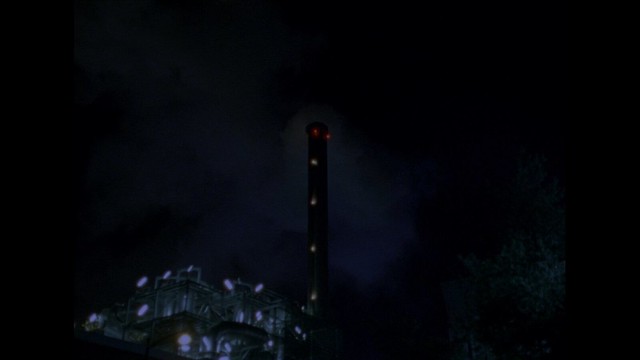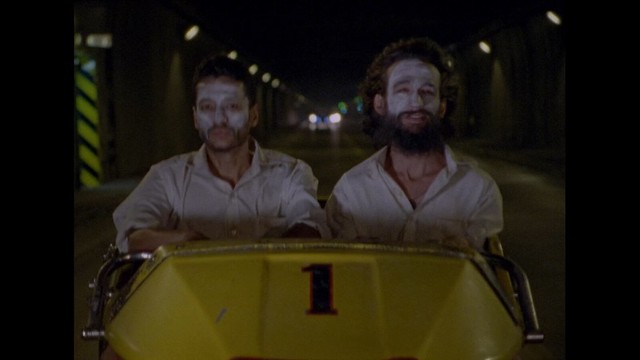
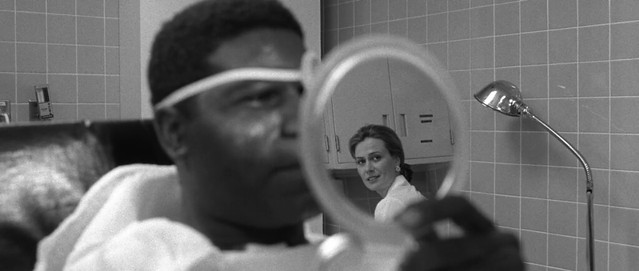
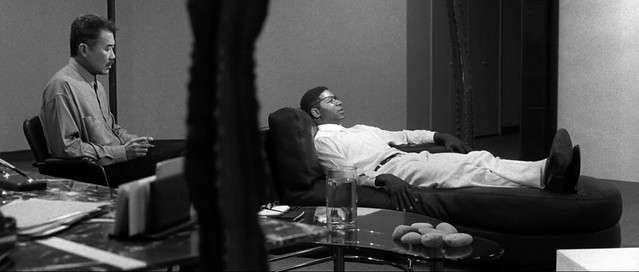

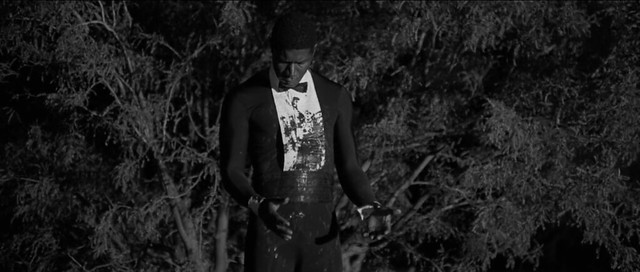
 Suture cleverly toys with the racial identity - both physical, psychological and performative but with a black actor playing a white man to the blind eyes of everyone in the movie, it becomes all that of physical & psychological. The slick noir tells a deception of a patricidal rich white man Vincent Towers (Michael Harris) who finds a perfect patsy in his long lost brother Clay (Dennis Haysbert) who happens to share striking resemblence(!!) to take the blame on their father's death. Feigning a sudden business trip, Vincent leaves Clay in charge with his opulent mansion and swaps their ID, then blows up his car with Clay in it with a remote. But Clay survives with his memories wiped clean and mangled face. People around him not seeing the color of his skin and assumes that he is Vincent, nurses him back to health with an extensive reconstructive plastic surgery.
Suture cleverly toys with the racial identity - both physical, psychological and performative but with a black actor playing a white man to the blind eyes of everyone in the movie, it becomes all that of physical & psychological. The slick noir tells a deception of a patricidal rich white man Vincent Towers (Michael Harris) who finds a perfect patsy in his long lost brother Clay (Dennis Haysbert) who happens to share striking resemblence(!!) to take the blame on their father's death. Feigning a sudden business trip, Vincent leaves Clay in charge with his opulent mansion and swaps their ID, then blows up his car with Clay in it with a remote. But Clay survives with his memories wiped clean and mangled face. People around him not seeing the color of his skin and assumes that he is Vincent, nurses him back to health with an extensive reconstructive plastic surgery.
Eugenics, white priviledge, interracial romance and many other stereotypical racial stereotypes are examined and explored within the confines of a noir genre setup. "How do we know who we are?" asks the psychoanalyst who narrates the film in the beginning. After Clay remembers his past and chooses to stay with the assumed identity, the narrator concludes with "Clay chose to errase the wrong past," did he though? There is nothing wrong with the desire to live in opulence and priviledge instead of in poverty. But Suture equals denying one's own past means losing one's soul. With brave casting, Suture seems to examine hefty subjects if it's only on the surface level. It is on us audiences to contemplate the rest.



